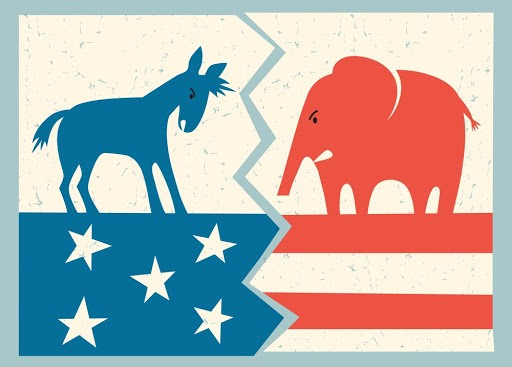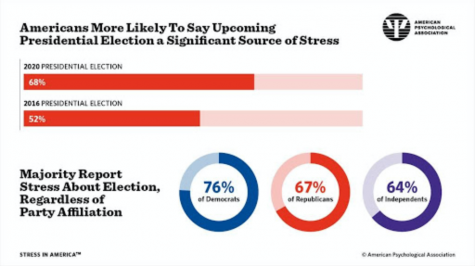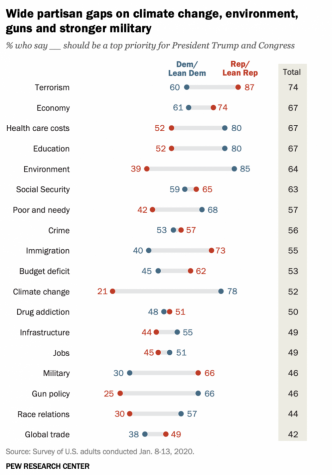United We Stand, Divided We Fall

December 11, 2020
In his 1776 Farewell Address, President George Washington warned the American people about the dangers of competing political parties.
Washington believed that, although political parties could reflect popular opinions, they would eventually “subvert the powers of the people” and “usurp for themselves the reins of government,” destroying the very democracy that brought them into power in the first place.
Over 200 years later, it seems, we’ve failed to heed his warning.
America is more divided now than ever, and this could have detrimental effects on the future of our democracy. According to the Pew Research Center:
- 80% of Americans today feel unfavorable towards their opposing party, and the animosity between Republicans and Democrats has nearly tripled since 1994.
- The number of Republicans and Democrats who view members of the opposing party as “close-minded” and “immoral” has increased in the last three years.
- 50% of Republicans and 46% of Democrats say that talking about politics with people they disagree with is generally “stressful and frustrating.”
Many believe that the political division in America has gone so far as to deteriorate friendships.

“Political division has sparked some heated arguments with my friends,” said junior Anna Wise. “Political opinions are becoming more joined with morality, and this can lead to conflicts and unstable relationships with people you’re close to.”
Junior Katie Hart also recognizes the political polarization within her friend group, and she argues that the media is fueling the divide.
“There is fake news coming from both sides, making both parties look bad,” said Hart.’ I think people forget that both parties want what is best for our country, however different their views may be.”
It’s no surprise that, according to Psychology Today, 33% of American teens report that politics has damaged multiple close relationships. Even more upsetting, 80% report that politics is a significant source of stress, on top of all the other things teens already lose sleep over.
We already know that the political partisanship within America is to blame for stress among both teens and adults, broken relationships, and increased animosity between opposing parties. But what does the divide mean for the future? What effects could it have on our democracy should it continue ― or worsen?
According to the National Center for Biotechnology Information, political division leads to inaction.
Highly polarized citizens often refuse to engage with one another, lowering the likelihood of compromise. And without compromise, it’s nearly impossible to generate progress in a country as diverse as America.

Without cooperation between both sides, problems will persist.
Though the responsibility falls on all Americans, teens especially have an obligation to fight for unity. We hold enormous influence on whether our future is one of progress or one of division and inaction.
For one, we need to make an effort to be more understanding and open-minded.
“It’s important to try and understand where someone is coming from and the reasoning behind their opinions,” said Hart.
America is founded on a melting pot of ideas. If we are tolerant and inclusive of different opinions, we are better able to see the whole truth, find the best idea, and innovate.
We should also remember that healthy debate doesn’t always equate to changing someone’s opinions.
“It’s important to think about how you want your political opinions to be respected, rather than constantly trying to change someone else’s views,” Hart said.
America is being pulled apart. If we want to fix problems and help America live up to its founding principles, we must fight for unity, for common ground, and for mutual understanding. We can help America heal and improve.
After all, Washington once said that the independence and liberty we enjoy are products of “joint counsels and joint efforts, of common dangers, sufferings, and successes.







Hannah O. • Mar 13, 2025 at 5:48 am
Thank you for being a voice of reason! Because of youth, like you, I have hope for a better tomorrow in the US! We have to be united, or divided we all fall. We unite when we listen to each other and then find solutions. Problem talk will never get us far. Keep seeking solutions! Well done!